Frequent persons on Israel-and-palestine's street signs
countries
59 names / 366 streets
Theodor Herzl
 17
Theodor Herzl was an Austro-Hungarian Jewish journalist, lawyer, writer, playwright and political activist who was the father of modern political Zionism. Herzl formed the Zionist Organization and...
17
Theodor Herzl was an Austro-Hungarian Jewish journalist, lawyer, writer, playwright and political activist who was the father of modern political Zionism. Herzl formed the Zionist Organization and...
Menachem Begin
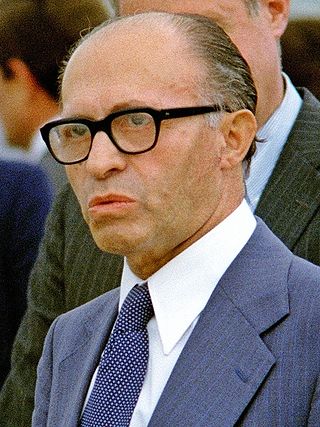 14
Menachem Begin was an Israeli politician, founder of Likud and the sixth Prime Minister of Israel.
14
Menachem Begin was an Israeli politician, founder of Likud and the sixth Prime Minister of Israel.
David Ben-Gurion
 13
David Ben-Gurion was the primary national founder of the State of Israel as well as its first prime minister. As head of the Jewish Agency from 1935, and later president of the Jewish Agency...
13
David Ben-Gurion was the primary national founder of the State of Israel as well as its first prime minister. As head of the Jewish Agency from 1935, and later president of the Jewish Agency...
Rothschild family
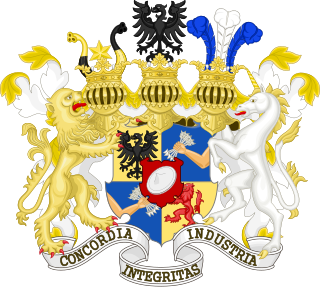 11
The Rothschild family is a wealthy Ashkenazi Jewish noble banking family originally from Frankfurt that rose to prominence with Mayer Amschel Rothschild (1744–1812), a court factor to the German...
11
The Rothschild family is a wealthy Ashkenazi Jewish noble banking family originally from Frankfurt that rose to prominence with Mayer Amschel Rothschild (1744–1812), a court factor to the German...
Simon bar Kokhba
 10
Simon bar Kokhba or Simon ben Koseba, commonly referred to simply as Bar Kokhba, was a Jewish military leader in Judea. He is the namesake of the Bar Kokhba revolt, which he initiated against the...
10
Simon bar Kokhba or Simon ben Koseba, commonly referred to simply as Bar Kokhba, was a Jewish military leader in Judea. He is the namesake of the Bar Kokhba revolt, which he initiated against the...
Hayim Nahman Bialik
 9
Hayim Nahman Bialik was a Jewish poet who wrote primarily in Hebrew and Yiddish. Bialik is considered a pioneer of modern Hebrew poetry, part of the vanguard of Jewish thinkers who gave voice to a...
9
Hayim Nahman Bialik was a Jewish poet who wrote primarily in Hebrew and Yiddish. Bialik is considered a pioneer of modern Hebrew poetry, part of the vanguard of Jewish thinkers who gave voice to a...
Haim Arlosoroff
 9
Haim Arlosoroff was a Socialist Zionist leader of the Yishuv during the British Mandate for Palestine, prior to the establishment of Israel, and head of the political department of the Jewish Agency....
9
Haim Arlosoroff was a Socialist Zionist leader of the Yishuv during the British Mandate for Palestine, prior to the establishment of Israel, and head of the political department of the Jewish Agency....
Henrietta Szold
 8
Henrietta Szold was an American-born Jewish Zionist leader and founder of Hadassah, the Women's Zionist Organization of America. In 1942, she co-founded Ihud, a political party in Mandatory Palestine...
8
Henrietta Szold was an American-born Jewish Zionist leader and founder of Hadassah, the Women's Zionist Organization of America. In 1942, she co-founded Ihud, a political party in Mandatory Palestine...
Hasmonean dynasty
 8
The Hasmonean dynasty was a ruling dynasty of Judea and surrounding regions during the Hellenistic times of the Second Temple period, from c. 140 BCE to 37 BCE. Between c. 140 and c. 116 BCE the...
8
The Hasmonean dynasty was a ruling dynasty of Judea and surrounding regions during the Hellenistic times of the Second Temple period, from c. 140 BCE to 37 BCE. Between c. 140 and c. 116 BCE the...
Moshe Dayan
 8
Moshe Dayan was an Israeli military leader and politician. As commander of the Jerusalem front in the 1948 Arab–Israeli War, Chief of Staff of the Israel Defense Forces (1953–1958) during the 1956...
8
Moshe Dayan was an Israeli military leader and politician. As commander of the Jerusalem front in the 1948 Arab–Israeli War, Chief of Staff of the Israel Defense Forces (1953–1958) during the 1956...
Yitzhak Sadeh
 8
Yitzhak Sadeh, was the commander of the Palmach and one of the founders of the Israel Defense Forces at the time of the establishment of the State of Israel.
8
Yitzhak Sadeh, was the commander of the Palmach and one of the founders of the Israel Defense Forces at the time of the establishment of the State of Israel.
Ze'ev Jabotinsky
 7
Ze'ev Jabotinsky was a Revisionist Zionist leader, author, poet, orator, soldier, and founder of the Jewish Self-Defense Organization in Odessa.
7
Ze'ev Jabotinsky was a Revisionist Zionist leader, author, poet, orator, soldier, and founder of the Jewish Self-Defense Organization in Odessa.
Eliezer Ben-Yehuda
 7
Eliezer Ben‑Yehuda was a Russian-Jewish linguist, lexicographer, and journalist. He is renowned as the lexicographer of the first Hebrew dictionary and also as the editor of Jerusalem-based HaZvi,...
7
Eliezer Ben‑Yehuda was a Russian-Jewish linguist, lexicographer, and journalist. He is renowned as the lexicographer of the first Hebrew dictionary and also as the editor of Jerusalem-based HaZvi,...
David Ben-Gurion
 7
David Ben-Gurion was the primary national founder of the State of Israel as well as its first prime minister. As head of the Jewish Agency from 1935, and later president of the Jewish Agency...
7
David Ben-Gurion was the primary national founder of the State of Israel as well as its first prime minister. As head of the Jewish Agency from 1935, and later president of the Jewish Agency...
Judah Halevi
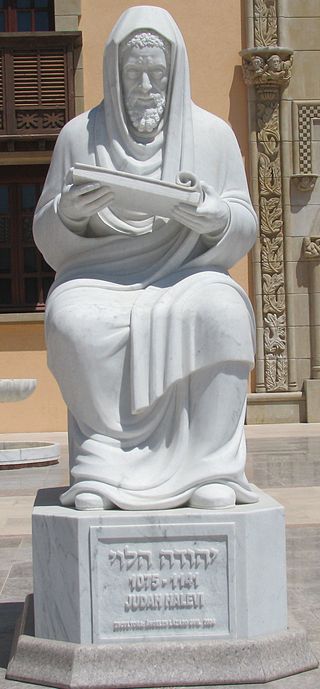 7
Judah Halevi was a Sephardic Jewish poet, physician and philosopher. He was born in Al-Andalus, either in Toledo or Tudela, in 1075. He is thought to have died in 1141, in either Jerusalem, at that...
7
Judah Halevi was a Sephardic Jewish poet, physician and philosopher. He was born in Al-Andalus, either in Toledo or Tudela, in 1075. He is thought to have died in 1141, in either Jerusalem, at that...
Ze'ev Jabotinsky
 7
Ze'ev Jabotinsky was a Revisionist Zionist leader, author, poet, orator, soldier, and founder of the Jewish Self-Defense Organization in Odessa.
7
Ze'ev Jabotinsky was a Revisionist Zionist leader, author, poet, orator, soldier, and founder of the Jewish Self-Defense Organization in Odessa.
Hannah Szenes
 7
Hannah Szenes was a Hungarian Jewish poet and a Special Operations Executive (SOE) member. She was one of 37 Jewish SOE recruits from Mandate Palestine parachuted by the British into Yugoslavia...
7
Hannah Szenes was a Hungarian Jewish poet and a Special Operations Executive (SOE) member. She was one of 37 Jewish SOE recruits from Mandate Palestine parachuted by the British into Yugoslavia...
Yitzhak Rabin
 7
Yitzhak Rabin was an Israeli politician, statesman and general. He was the fifth prime minister of Israel, serving two terms in office, 1974–1977, and from 1992 until his assassination in 1995.
7
Yitzhak Rabin was an Israeli politician, statesman and general. He was the fifth prime minister of Israel, serving two terms in office, 1974–1977, and from 1992 until his assassination in 1995.
Golda Meir
 7
Golda Meir was an Israeli politician who served as the fourth prime minister of Israel from 1969 to 1974. She was Israel's first and only female head of government and the first in the Middle East.
7
Golda Meir was an Israeli politician who served as the fourth prime minister of Israel from 1969 to 1974. She was Israel's first and only female head of government and the first in the Middle East.
Abraham Isaac Kook
 6
Abraham Isaac Kook, known as HaRav Kook, and also known by the Hebrew-language acronym Hara'ayah, was an Orthodox rabbi, and the first Ashkenazi Chief Rabbi of British Mandatory Palestine. He is...
6
Abraham Isaac Kook, known as HaRav Kook, and also known by the Hebrew-language acronym Hara'ayah, was an Orthodox rabbi, and the first Ashkenazi Chief Rabbi of British Mandatory Palestine. He is...
Solomon ibn Gabirol
Chaim Weizmann
 6
Chaim Azriel Weizmann was a Russian-born biochemist, Zionist leader and Israeli statesman who served as president of the Zionist Organization and later as the first president of Israel. He was...
6
Chaim Azriel Weizmann was a Russian-born biochemist, Zionist leader and Israeli statesman who served as president of the Zionist Organization and later as the first president of Israel. He was...
David
 6
David was a Jewish monarch of ancient Israel and the third king of the United Kingdom of Israel, according to the Hebrew Bible and Old Testament.
6
David was a Jewish monarch of ancient Israel and the third king of the United Kingdom of Israel, according to the Hebrew Bible and Old Testament.
Eliyahu Golomb
 6
Eliyahu Golomb was a Zionist activist.
6
Eliyahu Golomb was a Zionist activist.
Arthur Balfour
 6
Arthur James Balfour, 1st Earl of Balfour,, also known as Lord Balfour, was a British statesman and Conservative politician who served as Prime Minister of the United Kingdom from 1902 to 1905. As...
6
Arthur James Balfour, 1st Earl of Balfour,, also known as Lord Balfour, was a British statesman and Conservative politician who served as Prime Minister of the United Kingdom from 1902 to 1905. As...
Ahad Ha'am
 6
Asher Zvi Hirsch Ginsberg, primarily known by his Hebrew name and pen name Ahad Ha'am, was a Hebrew journalist and essayist, and one of the foremost pre-state Zionist thinkers. He is known as the...
6
Asher Zvi Hirsch Ginsberg, primarily known by his Hebrew name and pen name Ahad Ha'am, was a Hebrew journalist and essayist, and one of the foremost pre-state Zionist thinkers. He is known as the...
Rehavam Ze'evi
 6
Rehavam Ze'evi was an Israeli general and politician who founded the far-right nationalist Moledet party, mainly advocating for cleansing of the complete Palestinian population through population...
6
Rehavam Ze'evi was an Israeli general and politician who founded the far-right nationalist Moledet party, mainly advocating for cleansing of the complete Palestinian population through population...
David Elazar
 6
David "Dado" Elazar was the ninth Chief of Staff of the Israel Defense Forces (IDF), serving in that capacity from 1972 to 1974. He was forced to resign in the aftermath of the Yom Kippur War.
6
David "Dado" Elazar was the ninth Chief of Staff of the Israel Defense Forces (IDF), serving in that capacity from 1972 to 1974. He was forced to resign in the aftermath of the Yom Kippur War.
Solomon
 6
Solomon, also called Jedidiah, was a monarch of ancient Israel and the son and successor of King David, according to the Hebrew Bible or Old Testament. He is described as having been the penultimate...
6
Solomon, also called Jedidiah, was a monarch of ancient Israel and the son and successor of King David, according to the Hebrew Bible or Old Testament. He is described as having been the penultimate...
David Remez
 6
David Remez was an Israeli politician, the country's first Minister of Transportation, and a signatory of the Israeli declaration of independence.
6
David Remez was an Israeli politician, the country's first Minister of Transportation, and a signatory of the Israeli declaration of independence.
Yitzhak Shamir
 6
Yitzhak Shamir was an Israeli politician and the seventh prime minister of Israel, serving two terms. Before the establishment of the State of Israel, Shamir was a leader of the Zionist militant...
6
Yitzhak Shamir was an Israeli politician and the seventh prime minister of Israel, serving two terms. Before the establishment of the State of Israel, Shamir was a leader of the Zionist militant...
Nahum Sokolow
 5
Nahum ben Joseph Samuel Sokolow was a Zionist leader, author, translator, and a pioneer of Hebrew journalism.
5
Nahum ben Joseph Samuel Sokolow was a Zionist leader, author, translator, and a pioneer of Hebrew journalism.
Aryeh Ben-Eliezer
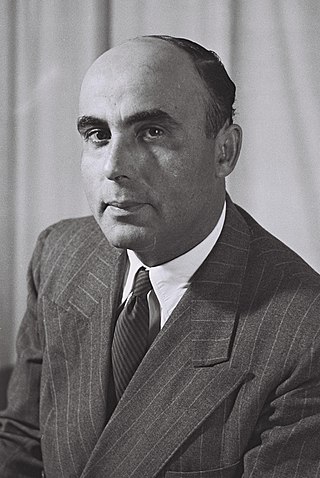 5
Aryeh Ben-Eliezer was a Revisionist Zionist leader, Irgun member and Israeli politician.
5
Aryeh Ben-Eliezer was a Revisionist Zionist leader, Irgun member and Israeli politician.
Levi Eshkol
 5
Levi Eshkol, born Levi Yitzhak Shkolnik, was an Israeli statesman who served as the third Prime Minister of Israel from 1963 until his death from a heart attack in 1969. A founder of the Israeli...
5
Levi Eshkol, born Levi Yitzhak Shkolnik, was an Israeli statesman who served as the third Prime Minister of Israel from 1963 until his death from a heart attack in 1969. A founder of the Israeli...
Yehoshua Hankin
 5
Yehoshua Hankin was a Zionist activist who was responsible for most of the major land purchases of the Zionist Organization in Ottoman Palestine and Mandatory Palestine – in particular for the...
5
Yehoshua Hankin was a Zionist activist who was responsible for most of the major land purchases of the Zionist Organization in Ottoman Palestine and Mandatory Palestine – in particular for the...
Yosef Haim Brenner
 5
Yosef Haim Brenner was a Hebrew-language author from the Russian Empire, and one of the pioneers of modern Hebrew literature.
5
Yosef Haim Brenner was a Hebrew-language author from the Russian Empire, and one of the pioneers of modern Hebrew literature.
Saul
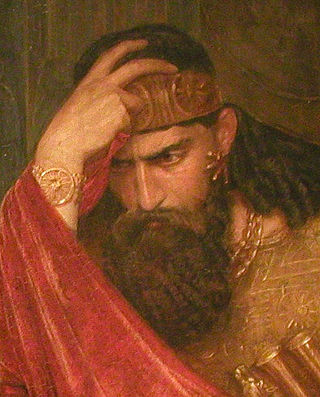 5
Saul was, according to the Hebrew Bible, the first monarch of the United Kingdom of Israel. His reign, traditionally placed in the late 11th century BC, supposedly marked the transition of Israel and...
5
Saul was, according to the Hebrew Bible, the first monarch of the United Kingdom of Israel. His reign, traditionally placed in the late 11th century BC, supposedly marked the transition of Israel and...
Eliezer Kaplan
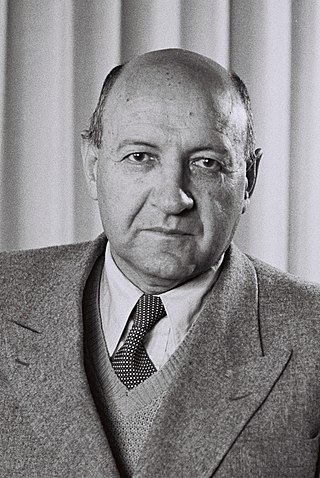 5
Eliezer Kaplan was a Zionist activist, Israeli politician, one of the signatories of the Israeli declaration of independence and the country's first Minister of Finance and Deputy Prime Minister.
5
Eliezer Kaplan was a Zionist activist, Israeli politician, one of the signatories of the Israeli declaration of independence and the country's first Minister of Finance and Deputy Prime Minister.
Maimonides
 5
Moses ben Maimon (1138–1204), commonly known as Maimonides and also referred to by the Hebrew acronym Rambam, was a Sephardic rabbi and philosopher who became one of the most prolific and influential...
5
Moses ben Maimon (1138–1204), commonly known as Maimonides and also referred to by the Hebrew acronym Rambam, was a Sephardic rabbi and philosopher who became one of the most prolific and influential...
Yitzhak HaLevi Herzog
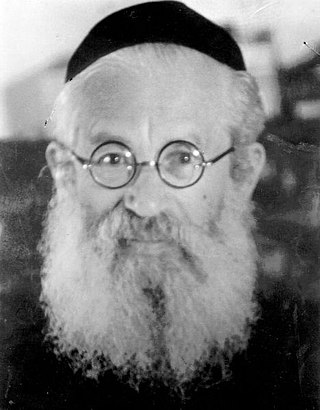 5
Yitzhak HaLevi Herzog, also known as Isaac Herzog or Hertzog, was the first Chief Rabbi of Ireland, his term lasting from 1921 to 1936. From 1936 until his death in 1959, he was Ashkenazi Chief Rabbi...
5
Yitzhak HaLevi Herzog, also known as Isaac Herzog or Hertzog, was the first Chief Rabbi of Ireland, his term lasting from 1921 to 1936. From 1936 until his death in 1959, he was Ashkenazi Chief Rabbi...
Isaac Abarbanel
Ber Borochov
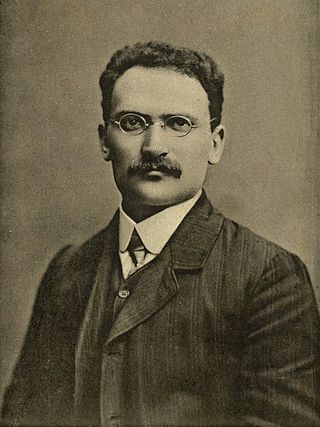 5
Dov Ber Borochov was a Marxist Zionist and one of the founders of the Labor Zionist movement. He was also a pioneer in the study of the Yiddish language.
5
Dov Ber Borochov was a Marxist Zionist and one of the founders of the Labor Zionist movement. He was also a pioneer in the study of the Yiddish language.
Yitzchak Elchanan Spektor
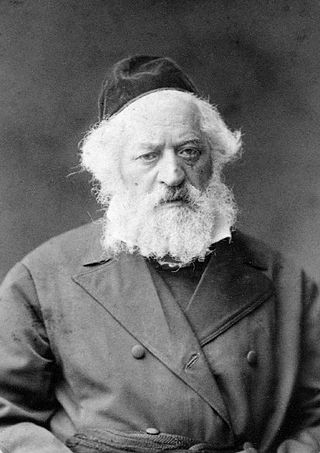 4
Yitzchak Elchanan Spektor or Isaac Elhanan Spector was a Russian rabbi, posek and Talmudist of the 19th century.
4
Yitzchak Elchanan Spektor or Isaac Elhanan Spector was a Russian rabbi, posek and Talmudist of the 19th century.
Samuel Mohilever
 4
Samuel Mohilever, also Shmuel Mohilever, was a rabbi, pioneer of Religious Zionism and one of the founders of the Hovevei Zion movement.
4
Samuel Mohilever, also Shmuel Mohilever, was a rabbi, pioneer of Religious Zionism and one of the founders of the Hovevei Zion movement.
Rashi
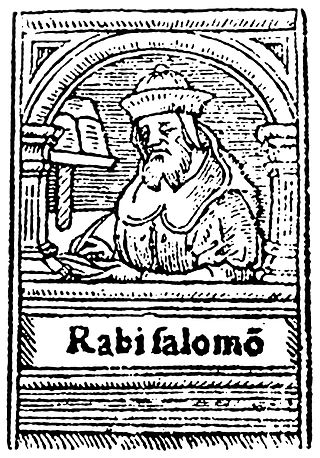 4
Shlomo Yitzchaki, generally known by the acronym Rashi, was a medieval French rabbi, the author of comprehensive commentaries on the Talmud and Hebrew Bible.
4
Shlomo Yitzchaki, generally known by the acronym Rashi, was a medieval French rabbi, the author of comprehensive commentaries on the Talmud and Hebrew Bible.
Rabbi Akiva
 4
Akiva ben Joseph, also known as Rabbi Akiva, was a leading Jewish scholar and sage, a tanna of the latter part of the first century and the beginning of the second century. Rabbi Akiva was a leading...
4
Akiva ben Joseph, also known as Rabbi Akiva, was a leading Jewish scholar and sage, a tanna of the latter part of the first century and the beginning of the second century. Rabbi Akiva was a leading...
Berl Katznelson
 4
Berl Katznelson was one of the intellectual founders of Labor Zionism, instrumental to the establishment of the modern state of Israel, and the editor of Davar, the first daily newspaper of the...
4
Berl Katznelson was one of the intellectual founders of Labor Zionism, instrumental to the establishment of the modern state of Israel, and the editor of Davar, the first daily newspaper of the...
Albert Einstein
 4
Albert Einstein was a German-born theoretical physicist who is widely held to be one of the greatest and most influential scientists of all time. Best known for developing the theory of relativity,...
4
Albert Einstein was a German-born theoretical physicist who is widely held to be one of the greatest and most influential scientists of all time. Best known for developing the theory of relativity,...
Yigal Allon
 4
Yigal Allon was an Israeli military leader and politician. He was a commander of the Palmach and a general in the Israeli Defense Forces (IDF). He was also a leader of the Ahdut HaAvoda and Israeli...
4
Yigal Allon was an Israeli military leader and politician. He was a commander of the Palmach and a general in the Israeli Defense Forces (IDF). He was also a leader of the Ahdut HaAvoda and Israeli...
Moshe Sharett
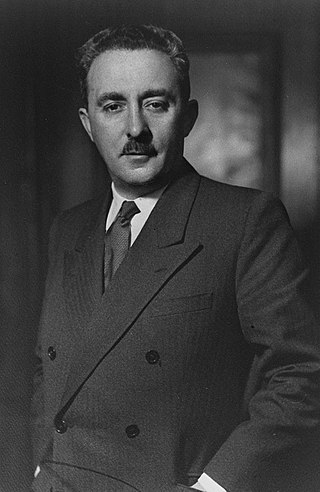 4
Moshe Sharett was an Israeli politician who served as the second prime minister of Israel from 1954 to 1955. A member of Mapai, Sharett's term was both preceded and succeeded by the premiership of...
4
Moshe Sharett was an Israeli politician who served as the second prime minister of Israel from 1954 to 1955. A member of Mapai, Sharett's term was both preceded and succeeded by the premiership of...
Menachem Ussishkin
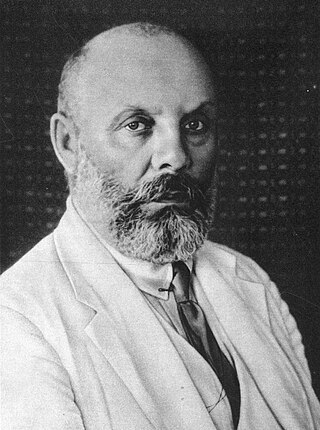 4
Menachem Ussishkin was a Russian-born Zionist leader and head of the Jewish National Fund.
4
Menachem Ussishkin was a Russian-born Zionist leader and head of the Jewish National Fund.
Salman al-Ouda
 4
Salman bin Fahd bin Abdullah al-Ouda or Salman al-Ouda, Salman al-Oadah, Salman al-Audah, or Salman al-Awdah - kunya: Abu Mu'ad - is a Saudi Muslim scholar. Al-Ouda is a member of the International...
4
Salman bin Fahd bin Abdullah al-Ouda or Salman al-Ouda, Salman al-Oadah, Salman al-Audah, or Salman al-Awdah - kunya: Abu Mu'ad - is a Saudi Muslim scholar. Al-Ouda is a member of the International...
Leon Pinsker
 4
Leon Pinsker was a physician and Zionist activist.
4
Leon Pinsker was a physician and Zionist activist.
Moshe Chaim Luzzatto
 4
Moshe Chaim Luzzatto, also known by the Hebrew acronym RaMCHaL, was a prominent Italian Jewish rabbi, kabbalist, and philosopher.
4
Moshe Chaim Luzzatto, also known by the Hebrew acronym RaMCHaL, was a prominent Italian Jewish rabbi, kabbalist, and philosopher.
Yosef Sprinzak
 4
Yosef Sprinzak was a leading Zionist activist in the first half of the 20th century, an Israeli politician, and the first Speaker of the Knesset, a role he held from 1949 until his death in 1959.
4
Yosef Sprinzak was a leading Zionist activist in the first half of the 20th century, an Israeli politician, and the first Speaker of the Knesset, a role he held from 1949 until his death in 1959.
Gamal Abdel Nasser
 4
Gamal Abdel Nasser Hussein was an Egyptian military officer and politician who served as the second president of Egypt from 1954 until his death in 1970. Nasser led the Egyptian revolution of 1952...
4
Gamal Abdel Nasser Hussein was an Egyptian military officer and politician who served as the second president of Egypt from 1954 until his death in 1970. Nasser led the Egyptian revolution of 1952...
Judah ha-Nasi
 4
Judah ha-Nasi or Judah I, known simply as Rebbi or Rabbi, was a second-century rabbi and chief redactor and editor of the Mishnah. He lived from approximately 135 to 217 CE. He was a key leader of...
4
Judah ha-Nasi or Judah I, known simply as Rebbi or Rabbi, was a second-century rabbi and chief redactor and editor of the Mishnah. He lived from approximately 135 to 217 CE. He was a key leader of...
David-Zvi Pinkas
 4
David-Zvi Pinkas was a Zionist activist and Israeli politician. A signatory of the Israeli declaration of independence, he was the country's third Minister of Transport.
4
David-Zvi Pinkas was a Zionist activist and Israeli politician. A signatory of the Israeli declaration of independence, he was the country's third Minister of Transport.
Yehoshua Hankin
 4
Yehoshua Hankin was a Zionist activist who was responsible for most of the major land purchases of the Zionist Organization in Ottoman Palestine and Mandatory Palestine – in particular for the...
4
Yehoshua Hankin was a Zionist activist who was responsible for most of the major land purchases of the Zionist Organization in Ottoman Palestine and Mandatory Palestine – in particular for the...